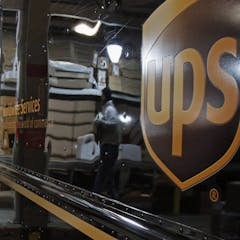
Articles on Behavioral economics
Displaying 1 - 20 of 53 articles

One more reason not to drive into midtown Manhattan: Soon it will cost an extra $15 as New York City launches its long-debated congestion pricing system.

People who object to affirmative action were more likely to discriminate against job candidates with Black-sounding names than those who supported it, whether or not they had to rush.

Returns cost companies billions of dollars in lost sales. They also generate emissions and packaging waste. Two logistics experts offer some tips from psychology for more sustainable returns.

People tend not to think that their own emotions could simply be wrong. But research shows that people excessively dislike others who disagree with them.

Evidence from Massachusetts suggests that a multistep process discourages enrollment. The findings could help policymakers stave off a sharp decline in coverage when COVID-19 policies change.

Many Starbucks customers are irked by recent changes to its popular rewards program. But they may not have as much to complain about as it seems.

Asking alumni to reflect on ‘a person or event in their past that had particularly benefited them since graduating’ resulted in larger gifts.

Experiments in the US and Italy that observed people’s charitable choices found similar results: People tend to prefer to help local communities.

Microeconomics analyzes how individuals and businesses behave as they try to get the most they can for as little money as possible.

Several studies found that using the excuse ‘I don’t have time’ when declining an invitation harmed the relationship with the person who extended it.

An experimental study found that the vast majority of women didn’t support a pay policy that corrected for an advantage they received, slightly more than men in the same position.

Governments and companies are using incentives in hopes of getting more Americans to get a COVID-19 shot. A behavioral economist explains how they work.

Cognitive neuroscientists use brain imaging and behavioral economic games to investigate people’s sense of fairness. They find it’s common to take care of yourself before looking out for others.

When deciding whether others should make trades, children may consider who likes what.

Unfairness alone is upsetting enough to drive people to punish lucky recipients of unfair outcomes.

Policies meant to improve public health – like mandatory face masks during the coronavirus pandemic – need to take into account how people might adjust other behaviors in response.

Policymakers need to figure out ways to sustain the behaviors that are helping flatten the curve as cities begin to end their lockdowns.

Behavioral economists explain how widespread use of face masks, hand sanitizer and other preventive measures could counterintuitively encourage riskier behaviors around coronavirus.

New research shows that when companies do things like give to charity or reduce their carbon footprint, consumers perceive their products as less risky.

Because most people want to be perceived as generous, sometimes monetary incentives for doing a good deed are counterproductive.
